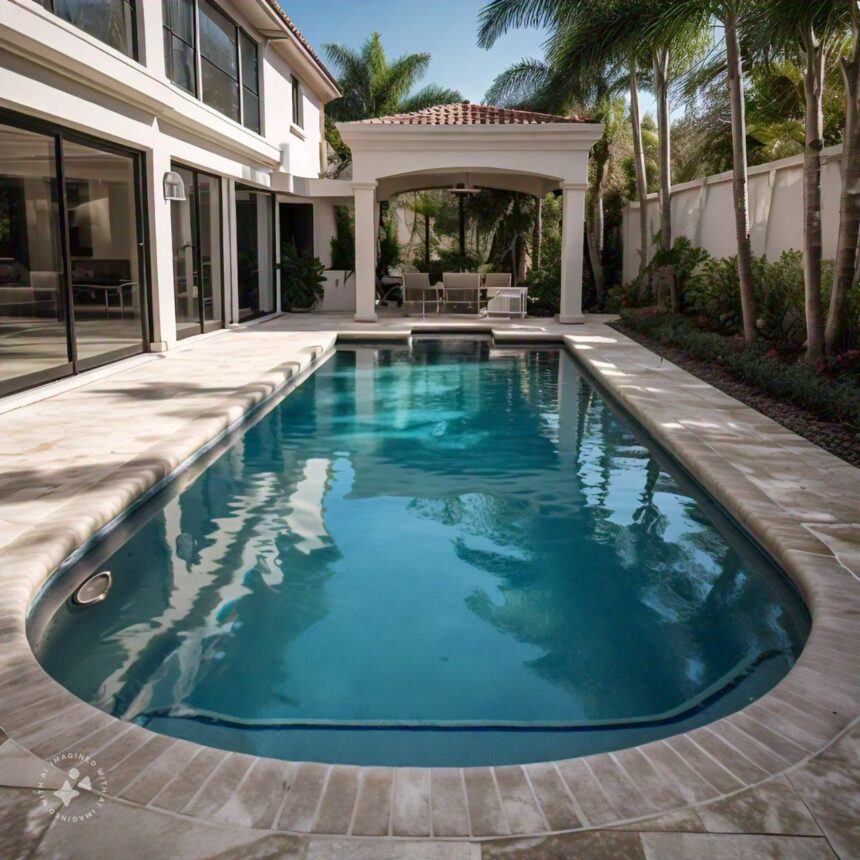A well-maintained pool provides endless hours of enjoyment, but without proper care, it can quickly become a source of frustration. From cloudy water to malfunctioning equipment, pool problems can arise when routine pool maintenance is neglected. Fortunately, most of these issues are preventable with regular upkeep, saving homeowners from costly repairs and unexpected downtime.
In this article, we’ll explore some of the most common pool problems and explain how consistent maintenance can help prevent them, ensuring your pool stays in great condition year-round.
1. Cloudy or Murky Water
One of the most common complaints from pool owners is cloudy or murky water. While it’s not only visually unappealing, cloudy water can also be a sign of deeper issues, such as poor filtration or unbalanced water chemistry.
Causes of Cloudy Water
- Poor Filtration: When the pool’s filter isn’t working efficiently, debris and particles accumulate in the water, leading to cloudiness. This could be due to a clogged filter, low water circulation, or simply not running the pump long enough.
- Unbalanced Chemicals: Improper chemical levels, especially in terms of pH and chlorine, can cause the water to turn cloudy. Low chlorine levels can lead to bacterial growth, while high pH levels prevent chlorine from working effectively.
- Debris and Organic Matter: Leaves, dirt, and other organic matter can break down in the water, contributing to cloudiness. Without regular skimming and vacuuming, debris can build up, causing the water to lose its clarity.
How Routine Maintenance Prevents Cloudy Water
Regular pool cleaning services ensure that your pool’s filter is kept in optimal condition and debris is removed before it has a chance to build up. Professionals, such as those at Triad Pool Management, will also balance the water’s chemical levels, ensuring that chlorine and pH levels are within the ideal range to keep the water clean and clear. By running the pump and filter for the recommended amount of time each day and cleaning the filter regularly, cloudy water can easily be avoided.
2. Algae Growth
Algae growth is another common problem that can turn your once-pristine pool into a green, slimy mess. Algae thrive in stagnant water and can take hold quickly, especially if the chemical balance is off or the pool isn’t cleaned regularly.
Causes of Algae Growth
- Poor Circulation: Algae love stagnant water, and if your pool’s pump isn’t running long enough or if certain areas of the pool don’t receive proper circulation, algae can begin to grow.
- Low Chlorine Levels: Chlorine is essential for keeping algae at bay. When chlorine levels drop too low, algae spores can multiply rapidly.
- Neglected Cleaning: Algae spores can cling to pool walls, floors, and steps. Without regular brushing and vacuuming, these areas can become breeding grounds for algae.
How Routine Maintenance Prevents Algae
Routine pool maintenance is the key to preventing algae. This includes regularly brushing the pool’s walls and floors, ensuring proper circulation by running the pump for 8 to 12 hours a day, and maintaining the correct chlorine levels. Professional pool services also help by performing regular water testing and shock treatments as needed to prevent algae from taking hold. A clean, well-maintained pool with balanced chemicals will resist algae growth, keeping the water clear and safe for swimming.
3. Equipment Malfunctions
Your pool’s equipment—such as the pump, filter, and heater—are essential for keeping the water clean and at the right temperature. When these systems fail, it can lead to more serious problems, such as poor water quality or an unusable pool.
Common Equipment Issues
- Pump Problems: The pump is responsible for circulating water through the filter, and if it isn’t functioning properly, the water becomes stagnant, leading to algae growth and dirty water. Pumps can become clogged with debris or suffer from motor failure over time.
- Filter Malfunctions: The filter keeps debris and contaminants out of the water. If it becomes clogged or stops working effectively, the water quality will quickly degrade, leading to cloudy water and increased bacteria.
- Heater Failure: If your pool heater malfunctions, it can affect your ability to enjoy the pool, especially in cooler weather. Common heater problems include issues with the thermostat or mineral buildup in the heating elements.
How Routine Maintenance Prevents Equipment Failures
Regular equipment inspections are a critical part of pool maintenance. During routine service visits, professionals like those at Triad Pool Management check the pump, filter, and heater to ensure they’re running efficiently. They’ll clean out debris, perform necessary repairs, and replace worn-out parts before they cause bigger problems. This preventative care helps extend the lifespan of your pool’s equipment and reduces the risk of unexpected breakdowns during peak swimming season.
4. Chemical Imbalances
Maintaining the right chemical balance in your pool is essential for keeping the water clean, safe, and comfortable for swimmers. When chemicals are out of balance, it can lead to a range of problems, from skin irritation to bacteria growth.
Signs of Chemical Imbalances
- High or Low pH: When the pH is too high or too low, swimmers can experience skin and eye irritation. Low pH levels make the water too acidic, which can also damage the pool’s surfaces and equipment, while high pH levels reduce the effectiveness of chlorine.
- Low Chlorine: Without enough chlorine, the pool becomes a breeding ground for bacteria and algae, leading to unsafe swimming conditions and murky water.
- Alkalinity and Calcium Hardness: These levels need to be balanced to prevent scaling (from too much calcium) or corrosiveness (from too little calcium), which can affect both the pool’s surfaces and equipment.
How Routine Maintenance Balances Chemicals
Regular testing and adjusting of chemical levels are critical to maintaining a healthy pool. Professionals from Triad Pool Management conduct thorough water testing as part of their routine pool cleaning service, ensuring that pH, chlorine, alkalinity, and calcium hardness levels are kept in balance. They’ll make necessary adjustments and can recommend any additional treatments to keep the water stable throughout the swimming season. Consistent monitoring and maintenance of water chemistry prevent larger issues from arising and keep the pool safe for swimmers.
5. Leaks and Structural Damage
Leaks in your pool can lead to more than just water loss—they can cause significant damage to the pool’s structure, surrounding deck, and even the landscape. Early detection of leaks and cracks is crucial to prevent costly repairs later on.
Causes of Pool Leaks
- Cracks in the Pool’s Shell: Over time, concrete or vinyl pool liners can develop cracks due to shifting ground, temperature changes, or normal wear and tear.
- Leaking Plumbing: Pool plumbing can develop leaks due to corrosion, ground movement, or tree roots. These leaks can be harder to detect but can cause significant water loss if not addressed.
- Worn-Out Seals: Seals around the pump, filter, or other equipment can degrade over time, leading to slow leaks that affect the pool’s water level.
How Routine Maintenance Prevents Leaks
Routine pool inspections are essential for identifying potential leaks early. Professionals will carefully inspect the pool’s structure, plumbing, and equipment for signs of wear or damage. By catching cracks or worn seals early, they can perform pool repair services before the issue worsens, saving you from expensive repairs or water damage to your property.
Conclusion: Consistent Care for a Problem-Free Pool
While pool ownership can be a lot of work, many common problems are easily preventable with regular pool maintenance. From cloudy water and algae growth to equipment malfunctions and leaks, these issues are much less likely to arise when your pool receives consistent, professional care.
By scheduling routine services with a trusted provider like Triad Pool Management, you can avoid the headaches that come with neglected maintenance. Their expert team ensures your pool stays in peak condition, so you can focus on enjoying your time by the water without worrying about unexpected problems.


